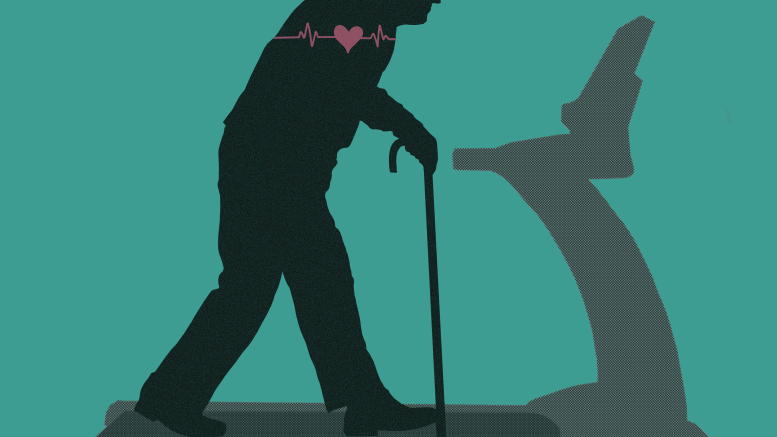Frailty is a state of reduced health that may result from aging. Frail older adults tend to experience weakness, have reduced muscle mass and low activity levels. Relatively minor events, such as a fall or a bout of influenza, can bear dangerous health implications.
The 25 to 50 per cent of heart surgery patients who are frail face increased risks in and out of the operating room, ranging from longer post-operative stays to higher mortality rates.
Todd Duhamel is a professor in the U of M’s faculty of kinesiology and recreation management. His research looks at physical activity to improve the health outcomes of patients with frailty and cardiovascular disease.
One focus of Duhamel’s work is assessing patients’ frailty to create better clinical care plans. Tests measure frailty on an index using metrics like walking speed and grip strength. These assessments can be used to predict which patients will have worse outcomes following heart surgery.
“When we know that people who are more frail tend to have worse outcomes, […] we can actually screen people for frailty and then offer them programming that’ll maybe help reverse frailty and, in that way, they’ll have better outcomes after cardiac surgery,” he said.
In one of Duhamel’s studies, a thousand women participated in non-invasive heart health screening. The process involved cardiac assessment of resting blood pressure, blood pressure response to exercising for three minutes and elasticity of arteries.
Women that are frail are two and a half times more likely to have an elevated Framingham risk score than those who are robust. The Framingham risk score estimates ten-year cardiovascular disease using risk factors like older age, high cholesterol, high blood pressure and smoking.
Duhamel also explores interventions that improve patients’ health. “If you were told you needed to have heart surgery, and you were told you were going to have a bad outcome, would you go ahead with that heart surgery?” Duhamel asked.
Instead, he suggested, you might seek out interventions prior to your operation to “get a little bit [healthier]” and improve your odds of a successful surgical outcome.
Duhamel noted that a wide variety of interventions exist. Nutritional interventions, for example, may include incorporating more protein in the diet to build muscle mass, as many older adults awaiting heart surgery have low protein intake. Exercise also presents a means of improving patient outcomes.
According to research from 2014, Canadian elective patients who require cardiac surgery are placed on a waiting list for one to four months. Though the wait time is found to be generally safe, studies show that patients awaiting surgery participate in little to no physical activity. In patients who are frail, this extended period of minimal exercise can cause further deterioration of their health.
A 2014 study co-led by Duhamel aimed to address this issue by utilizing the pre-surgical wait period to engage patients in exercise.
The pre-operative rehabilitation for reduction of hospitalization after coronary bypass and valvular surgery (PREHAB) study recruited elective cardiac surgery patients and found that those who participated in an eight-week exercise intervention before their operation had shorter hospital stays.
“Walking speed actually predicts how many days you’ll be in the hospital after surgery,” Duhamel said. “Something as simple as starting a walking program to get more physically fit, theoretically, should improve your health outcomes after surgery.”
Through the PREHAB program, patients with a slow walking speed, who were at risk for poor heart surgery outcomes, were able to improve their walking speed through consistent exercise at a fitness centre. This moved them from a high-risk to low-risk zone prior to their cardiac surgery.
“It’s important to know that frailty is detectable in people of all ages,” Duhamel said. “We all know somebody who’s frail […] but we also know older adults who are actually quite robust and in really good health. They tend to be people who move more.”
He added that while many university students lead healthy and active lives, others are not as physically fit.
Later in life, a lack of exercise may result in frailty. Eventually, frailty can lead to poor health outcomes. Duhamel encouraged everyone to incorporate physical activity into their lives.
“The more you move, the more you reverse frailty.”



